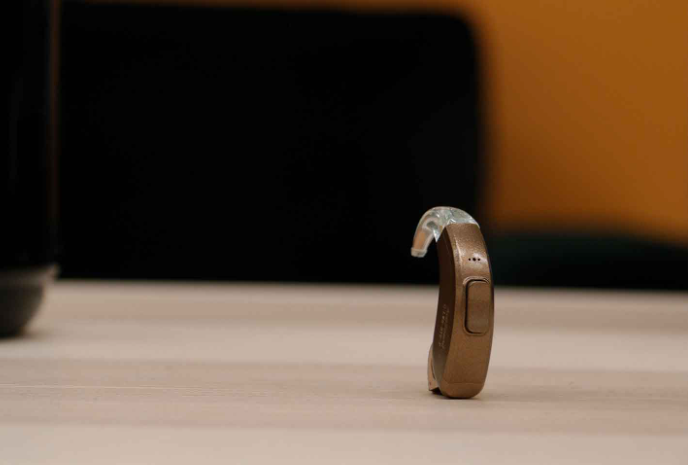For people with mild and moderate hearing loss, it is easy to choose a suitable hearing aid to meet their needs/ however, when it comes to hearing aids for profound hearing loss, one might have limited choices. Besides hearing aids treatment, a cochlear implant is also an option.
What is Profound Hearing Loss
The WHO states that you have a significant hearing loss if the softest sound that you can hear with your better ear is between 60 and 80 decibels. In other words, if you need to turn up the volume to 80 dB to be able to hear it, you would be considered as having a severe degree of hearing loss. In the United States, if you need to turn up the volume to 90 dB, then you would be considered as having a severe degree of hearing loss.
With either definition, if you have severe hearing loss, you will only be able to hear loud sounds without amplification. For example, if your car's windows are down, you could hear an ambulance siren that is 100 decibels loud, but you won't hear someone calling you from behind.
Significant hearing loss typically results from a disease, accident, or congenital abnormality rather than advancing age. In order to communicate, many members of this group read lips or utilize sign language.
Lip-reading and sign language are two useful techniques to improve your communication skills. People with severe or profound hearing loss, however, can still benefit from hearing aids or cochlear implants, much like Draper.
Hearing Aid Options for Severe Hearing Loss
All the mainstream hearing aid manufacturers provide superpower hearing aids for both adults and children who have profound or severe hearing loss. Due to the reasons that superpower hearing aids have more circuitry than conventional hearing aids, they tend to be a little bulkier.

Hearing aids for severe to profound hearing loss commonly come in a behind-the-ear (BTE) design, which has a complete earmold that fits snugly within the ear. You will require hearing aids for both ears unless one is functioning normally or has a mild degree of hearing loss.
Superpower behind-the-ear hearing aids are large and battery, and they are relatively not so invisible as other hearing aids styles.
ITE hearing aids, which are tiny and undetectable within the ear, however, due to the significant amount of hearing loss they are not always effective.
Profound Hearing Loss Treatments Alternative – Cochlear Implant
Superpower hearing aids might not be the ideal choice for everyone. Cochlear implants and bone-anchored hearing devices are other possible options for severe to profound hearing loss.

If you discover that a hearing aid is no longer meeting your hearing needs, follow up with an ENT to learn more about cochlear implantation possibilities.
A bone-anchored hearing aid can be a better choice if you suffer from chronic conductive hearing loss. Prior to you having a bone-anchored hearing aid implanted, follow-up with an ENT is also needed.
AcoSound suggests you visit a hearing professional to have a hearing test done, and discuss with your audiologist or an ENT in regard to how to properly pick your appropriate hearing solution for profound hearing loss.

